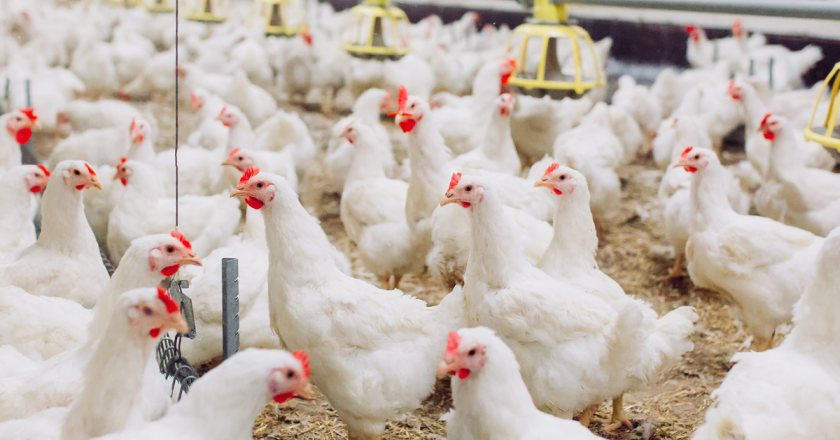
'Ground-breaking' peracetic acid technology could offer poultry producers a new defence against deadly pathogens like salmonella and avian influenza.
Trials undertaken by Aga2Tech, with support from Innovate UK, indicate an in-water acid treatment could be a valid method of infection prevention, offering an alternative to antibiotics.
Trials involving 250,000 broilers were carried out on farms in the north of England to assess practical application of the company’s patented peracetic acid treatment 'Peranan'.
It found there were considerably lower levels of pathogenic bacteria in the birds receiving the peracetic acid treatment, delivered at a 2% dilution in-water via drinker lines.
The trials confirmed the compound’s strong antimicrobial properties and ability to help to tackle common pathogens found in poultry environments without the need for antibiotics.
Adrian Fellows, CEO of R&D company Aga2Tech, explained: “When salmonella was naturally introduced to the 60,000 bird flock on one farm, it was completely eradicated in the experimental shed after just one week of Peranan treatment, while the infection persisted in the control shed.
“In another trial, on a farm that had been regularly testing positive for salmonella, we found our intervention was again successful in totally eradicating the pathogen; it hasn’t been detected in the shed since they started using the treatment.”
The new peracetic acid technology, which is the result of 20 years of human health research into antibiotic alternatives, has also been shown to eradicate the avian influenza virus in laboratory trials.
When tested at an independent, UKAS (United Kingdom Accreditation Service) certified lab, it found in-water Peranan was proven to kill the bird flu virus, while being completely safe for poultry consumption.
Mr Fellows explained: “Unlike other options for tackling the virus, such as bleach, the treatment is harmless to the user and the environment, even when used for a 42-day cycle – it breaks down into a benign substance.”
He said the compound works through a highly oxidative system, which generates a rapid transfer of energy to the virus particle, disrupting it.
“Our results indicate the peracetic acid treatment could be used as an effective mitigation measure to enhance on-farm biosecurity and prevent the disease taking hold,” he added.
Aga2Tech's next steps will involve more lab testing to assess the range of pathogens that Peranan proves effective against.
Further commercial farm trials will be carried out to see if the firm can shorten the shorten the length of treatment required to achieve the same efficacy.
